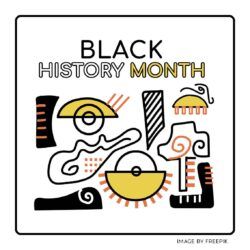Great women to the fore in Black History Month
We take pride in serving and employing people from all walks of life. But how did boroughs like Islington become so richly diverse?
For centuries accounts of British history focused almost exclusively on the royals, politicians, explorers, scientists and wars, with the occasional nod to plucky rebels.
Black History Month, first held in the UK in 1987, was in part a bid to fill huge gaps in our knowledge of black Britons.
It has also evolved, starting with a heavily US focus to a celebration now of what black people in the UK have achieved.

For this year’s BHM we are being encouraged to think about black women achievers in the UK, notably those who have been forgotten. Here are a few you may know about, most still happily with us:
Marlorie Blackman, best-selling author and first black Children’s Laureate. Born in 1962 in Merton, south London. Read more about her here.
Dr Maggie Aderin-Pocock MBE is a space scientist and science communicator and the first black woman to win a gold medal in the Physics News Award. She was president of the British Science Association from 2021 to 2022. Born in Camden in 1968 to Nigerian parents. Read more about her here.
Dame Elizabeth Anionwu began working in the NHS at the age of 16. She helped to set up the first nurse-led sickle cell and thalassemia screening and counselling center. Born in 1947 in Birmingham, of Irish Nigerian heritage. Read more about her here.
Claudia Jones Born in Trinidad in 1915, Claudia was a journalist, activist, and community leader perhaps best known for her role in helping create the Notting Hill Carnival . She also played a significant role in improving the housing conditions of black immigrants, particularly the Windrush generation. Arriving herself to find cramped and insanitary housing, she organised protests and campaigns demanding better living conditions for black people. (Our thanks to Housing Quality Network for this information) Find out more about her legacy today.
Shirley J Thompson, leading composer and conductor was born in Newham in 1958 and continues to live there. Read more about her here.
Olive Morris Jamaican born Olive joined her parents, already settled in south London, in 1961 when she was nine. She is remembered for her passionate advocacy and direct action for housing rights. By the 1970s, it had become extremely difficult for black and Asian people to get decent homes. Olive saw in squatting a solution. She was the first to squat a privately owned home in Brixton. She also co-founded the Brixton Black Women’s Group and was actively involved in the Organisation of Women of African and Asian Descent tackling issues including housing, racism, and sex equality. Her direct-action approach brought attention to the housing crisis and made her an iconic figure in both the Black Power movement and the fight for social housing. She died of cancer at the sadly early age of 27. Read more about her here. (Our thanks to Housing Quality Network for this information)
Joan Armatrading, one of the first British female award-winning singers
Born in St Kitts, raised in born Birmingham from age 7. Read more about her here.
Valda James who arrived in the 1961, first working in catering and a dressmaker as the family breadwinner to support her family. Valda later became a nurse then in 1986 Islington’s first black woman councillor. Two years later she became the council’s first black mayor, still starting her working day as a cleaning supervisor at 5.30am. Read more about her here.
The contribution of the Windrush generation is also being celebrated this year, 76 years after the 1948 arrival of passengers on HMT Empire Windrush to the UK.
We’d love to hear more of your own stories. Whether your ancestors never travelled further than Chapel Market or crossed several oceans or continents, willingly or otherwise, all family histories are fascinating and help us get a bigger picture of how and why our neighbourhoods grow and change.